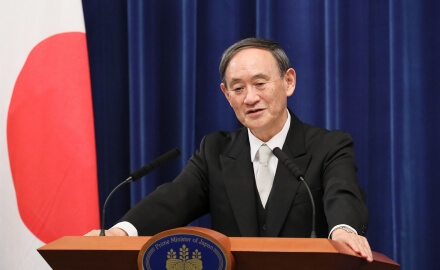Japan’s 2050 carbon pledge to spur market into action
October 27 2020 by Yvonne Lau-
Fusion Specialty launches Japanese subsidiary
- March 3
W&I specialist MGA in Japan will be led by Steven Harwood and Satoshi Omura.
-
Howden appoints Nobuyuki Akahane to lead new Japanese construction initiative
- February 23
He will be based in London and support an expanded focus on Japanese‑led construction and infrastructure projects across global markets.
-
Tokio Marine Group outlooks revised to positive on business, asset diversification: S&P
- February 20
S&P Global Ratings says it revised the outlooks to positive because it believes Tokio Marine Group will further diversify its business and asset base outside Japan.
-
Sompo receives regulatory approvals for US$3.5bn Aspen acquisition
- February 19
Transaction is expected to close in the next several days, subject to the satisfaction of customary closing conditions.
-
QBE | Elevating customer experience, humanising claims: QBE Asia’s ‘Solutions in a Box’
Vastly improving turnaround times and personalising service delivery, QBE Asia’s award-winning, end-to-end bundled claims solutions is a game-changer for the insurance industry.
-
Beazley | What does cyber protection look like from day 1 to day 600 and beyond?
Cybersecurity is no longer just an IT concern, but a governance issue that belongs on the boardroom agenda.
-
Sedgwick | Preparing for the next storm
Insurance industry needs to recalibrate, invest in innovation and strengthen systems, talent and data practices.
-
Peak Re | From climate modelling to market opportunity: Forging a new clarity on Southeast Asia’s climate risk
Southeast Asia's protection gap: a crisis of clarity, not just capital


